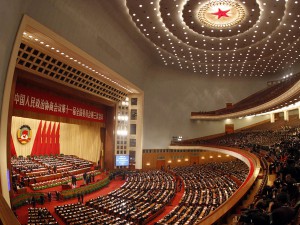Slower growth in demand for electricity along with the construction of many new power plants steered China into overcapacities of up to 20 percent. Full-load hours of thermal power plants in 2015 have plummeted to the lowest figure since 37 years.

According to Qiao Baoping, President of China’s third-largest energy supplier, China Guodian Corporation, the countries’ electricity generating capacity will soon be exceeding the actual demand by more than 20 percent. The installed capacity of China’s power plant fleet more than quadrupled since 2002, with the current level of 1.51 TW. Slower economic growth does however imply, slower growth of the Chinese electricity demand, and thus ushers the market into overcapacity.
The latest statistics from the National Energy Administration of China (NEA) indicate that the utilization of thermal power plants in 2015 reached its lowest level since 37 years. On average only 4329 full-load hours have been observed. During the first two months of 2016 the electricity consumption in China just grew by 2 percent and settled at 876.2 TWh. In light of the predicted extension of the thermal power plant fleet by 100 GW, the forecasts for 2016 yet see growing overcapacities.
During the annual session of the national People’s Congress several representatives from provincial governments criticized the plans of the central government to reduce overcapacities in the Chinese industry and coal sector. The main critique is directed to the planned cost-sharing scheme, which will occur when a re-structuring process between Beijing and the local governments comes into effect. Up to 6 million jobs in the coal and steel industry are estimated to disappear. Beijing announced to set up a fund endowed with 100 billion RMB (15 billion USD), which amongst others should finance the re-education measures for laid-off workers. Simultaneously it was pointed out that provincial governments and affected companies have to partake and share costs.



